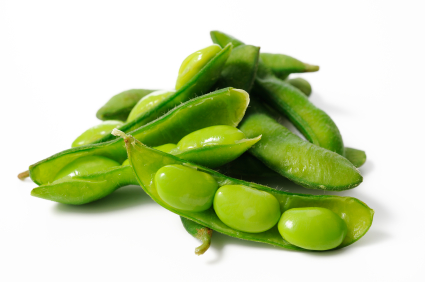|
In the new issue of Green Indicator we present some trends and pressing issues regarding the increasing use of agricultural crops for non-food uses. The increasing competition for agricultural products will affect not only the price for bio-diesel but also for example water security. In the CatScan section we ask if there are still disruptive innovations to be made in the field of industrial catalysis or if marginal modifications is the only way forward.
/Fredric Bauer
Food, Feed, Fibres & Fuel
Looking into the future of biobased chemicals, one can quickly discern that a certain type of crops will be more important than ever, oil producing plants such as rapeseed, oil palm and soy. The oil produced by the seeds and fruits of these plants can be used to produce a variety of fuels and chemicals and will become increasingly interesting in the near future. But what effect will an agricultural transition to these plants have on food prices, water resources and energy security?
In the latest Agricultural Outlook 2012-2021, an annual report on global trends and developments within the agricultural sector prepared jointly by the OECD and FAO, oilseeds are projected to become an increasingly important crop. Although the production of oilseeds is likely to grow about 20% in the coming decade, the rate of growth is actually declining compared to the past ten years. And although the use of vegetable oils for biodiesel constitutes the largest growth in demand in developed countries – biodiesel production is projected to account for 50% of the total vegetable oil consumption in the EU in 2020 – the majority of the oil production increase is due to larger food oil demand in developing countries, according to the projections.
Despite less public concern about the competition between agrofuels and foodcrops, the food vs fuel debate, the demand for vegetable oils have impacted the use of these oils for food, e.g. the Chinese use of palm oil for cooking is increasing as imports of European rapeseed oil decreases. To ensure a sufficient supply of food crops, the areas available for plantations of crops for biofuels and other nonanimal-feed products have been limited in China. Palm oil has become big business in Malaysia and Indonesia, which is the world’s largest producer of the commodity today.

In the struggle to increase plantation yields, water becomes an ever more crucial resource. The use of water for irrigation is an important issue as more and more fossil water is used in modern agriculture, i.e. water from non-replenished aquifers. A more common impact of oil seed plantations is however water contamination from pesticides. Due to its low need for irrigation and its natural toxicity, making pesticides unneeded, the jatropha plant has been viewed as a promising source of vegetable oil for biodiesel. Planting it in dry areas, unsuitable for other crops, would eliminate the competition with food oils. However, test plantations have shown that the plant needs more water than initially expected, harvesting the seeds is complicated and thus the introduction of biodiesel from jatropha oil has been delayed.
Apart from producing biodiesel, the vegetable oil and its derivatives can be used for many applications, e.g. the glycerine which is a byproduct in the biodiesel production process has gained much interest as the availability has increased. Researchers and companies within the chemical engineering field are now looking to produce monomers for bio-plastics, fine chemicals and vitamins from the compound. Oil seed crops will thus continue to play an important role for agriculture and the chemical industry ahead, and it seems likely that local conflicts between food, water and energy security will become more frequent.
|


